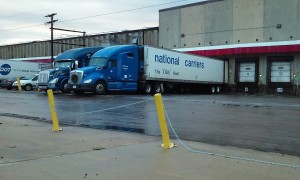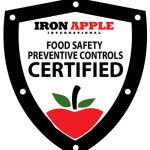NCI Director of Safety Jill Maschmeier has been preparing National Carriers for the upcoming US Food and Drug Administration Food Safety Modernization Act (FSMA). It is the most sweeping reform of food safety laws in more than 70 years. President Obama signed it into law on January 4, 2011. The ultimate goal is to ensure the U.S. food supply is safe by shifting the focus from responding to contamination to preventing it.
The FDA Food Safety Modernization Act (FSMA) rule on Sanitary Transportation of Human and Animal Food advances the FDA’s efforts to protect foods from farm to table by keeping them safe from contamination during transportation. Specifically, the FSMA rule establishes requirements for vehicles and transportation equipment, transportation operations, records, training and waivers
Maschmeier explained, “The new rule requires that the design and maintenance of vehicles and transportation equipment ensure that it does not cause the food that it transports to become unsafe. For example, trailers must be suitable and adequately cleanable for their intended use and capable of maintaining temperatures necessary for the safe transport of food.”
She continued, “The measures taken during transportation are to ensure food safety. Examples include: adequate temperature controls, preventing contamination of ready to eat food from touching raw food, protection of food from contamination by non-food items in the same load or previous load, and protection of food from cross-contact, i.e., the unintentional incorporation of a food allergen, maintenance of records of written procedures, agreements and training (required of carriers).”
 “Training of National Carriers drivers in sanitary transportation practices, then the documentation of the training, is one of our highest priorities. This training is required when the carrier and shipper agree that the carrier is responsible for sanitary conditions during transport. We have partnered with Iron Apple, an industry leader in food safety to implement the training. We began with our 4th quarter safety meeting, which involved an informative online video followed by a test,” concluded Maschmeier.
“Training of National Carriers drivers in sanitary transportation practices, then the documentation of the training, is one of our highest priorities. This training is required when the carrier and shipper agree that the carrier is responsible for sanitary conditions during transport. We have partnered with Iron Apple, an industry leader in food safety to implement the training. We began with our 4th quarter safety meeting, which involved an informative online video followed by a test,” concluded Maschmeier.